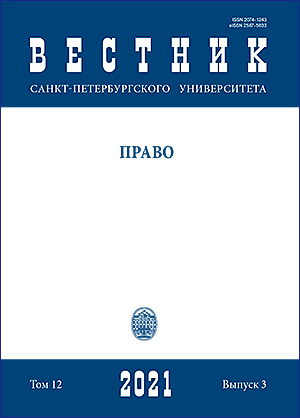Employee participation in corporate governance of Chinese companies: A comparative aspect
DOI:
https://doi.org/10.21638/spbu14.2021.316Abstract
The development of the stakeholder theory is one of the global trends in corporate governance. This article examines the problems of employee participation in corporate governance in accordance with the current legislation of the PRC and assesses the rationality of the chosen path of employee participation in corporate governance in China by conducting a comparative analysis with Germany and the United States. The author believes that due to the difference in historical origin and legislative basis, as well as taking into account structure-driven path dependence and rule-driven path dependence effects, from the point of view of legal regulation, a unique model of employee participation in corporate governance has formed in China. In addition, the mechanism of employee participation in corporate governance by the current legislation of China is generally suitable for the national conditions of China. In addition, the author makes suggestions for improving the mechanism of employee participation in corporate governance in China. Having studied the state of Russian legislation in comparison with China and other countries, the author suggests several issues that require special attention from the Russian legislator on this matter. It is noted that the study of the experience of legal regulation of employee participation in corporate governance in China will help in the development and amendment of further legislative provisions to regulate this issue in Russia, in order to advance towards better ideals of cooperation between workers and employers. Specifically, in the long term, the Russian legislator can also normatively secure employee participation in the development and adoption of managerial decisions in an appropriate form.
Keywords:
stakeholder, employee participation, corporate governance, comparative law, Chinese law
Downloads
References
Downloads
Published
How to Cite
Issue
Section
License
Articles of "Vestnik of Saint Petersburg University. Law" are open access distributed under the terms of the License Agreement with Saint Petersburg State University, which permits to the authors unrestricted distribution and self-archiving free of charge.






